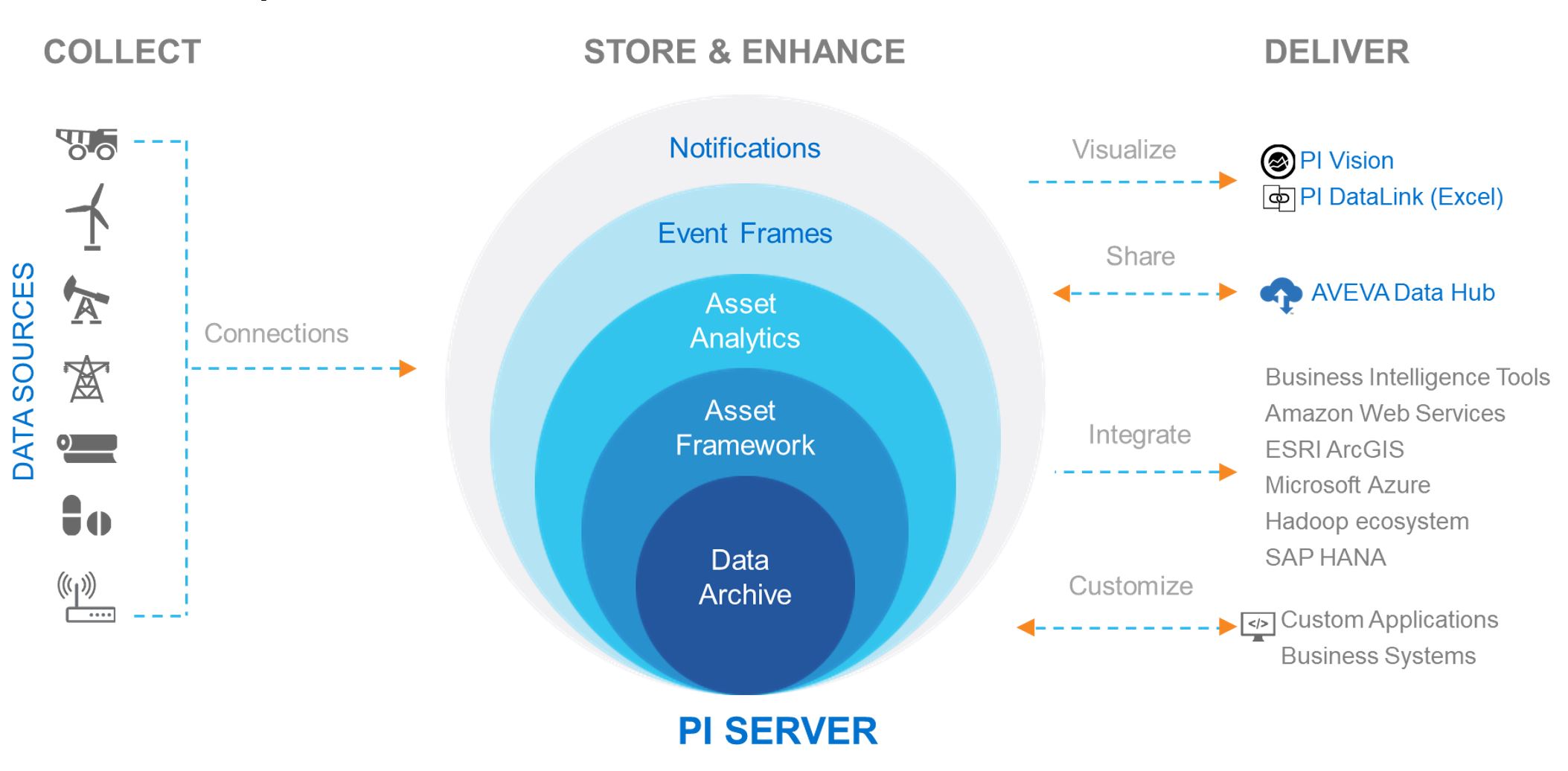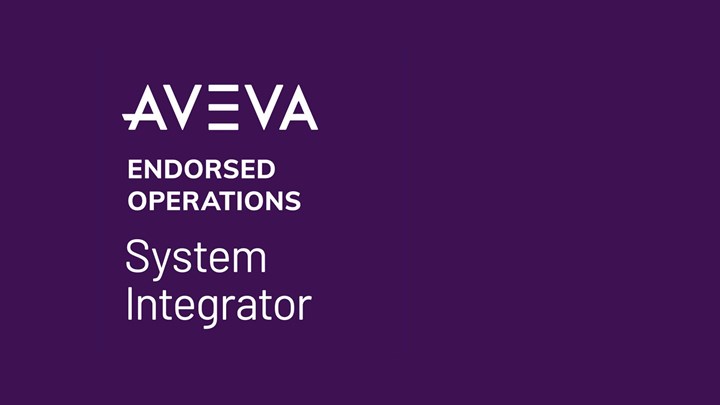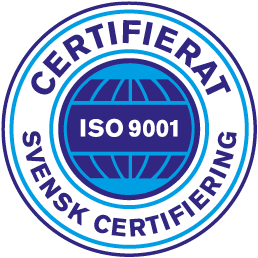AVEVA PI – A production data solution that both engineers and IT trust
AVEVA PI (formerly OSIsoft PI) is a data management solution designed specifically for industrial environments and real-time data processing. It allows you to collect and store data from any location and source and quickly extract the information you need to optimize your business – all without writing code, in a flexible platform. AVEVA PI is designed for rapid deployment, and users can create the content they need with easy-to-use end-user tools.
OSIsoft, AVEVA, Schneider Electric, and partners
Background and history are key to understanding the strengths of PI in today's large industrial digitalization market. The roots of PI go back to a company called OSIsoft, founded in 1980. OSIsoft's core objective was to provide the best real-time production information management solution on the market – the OSIsoft PI System. In August 2020, the PI System became part of a broader product portfolio when AVEVA announced its acquisition of OSIsoft, and the deal was completed on 19 March 2021 for a transaction value of around $5 billion. In January this year, Schneider Electric expanded its stake in AVEVA by increasing its shareholding to 100% from 60%.
AVEVA's operating model focuses on capable and certified system integrators responsible for practical project delivery. Roima Intelligence has long been the highest-level system integrator partner in Finland for AVEVA and OSIsoft.
Functionalities of the PI system
The functionalities of a PI system can be divided into three main areas: collecting data (Collect), storing and enriching data (Store & Enhance), and sharing and using data (Deliver).
At the collection level, PI offers hundreds of standard data collection interfaces. Support for connectivity ranges from commonly used OPC (DA, UA, etc.) interfaces to automation-specific protocols and cloud connectivity solutions such as Azure Event Hubs.
At the core of the data storage and enhancelevel is the Data Archive product, which is a typical process historian solution, i.e., a time series database. This is complemented by the Asset Framework (AF) module, which is used to model the equipment hierarchy, enriching the model by importing metadata from different systems, perform calculations, and define events . The AF is used to create views of the data and present the data model to end-users through clear naming conventions. The AF implementation relies heavily on a template-based approach, allowing, for example, to reuse calculations and consistently compare assets.
PI Vision provides a solution for data visualization through an HTML5-based web interface, where end-users can create dashboards and view PI system data freely. Data can also be easily transferred from the PI system to Excel using the PI DataLink Excel add-in.
In a modern data management solution, open interfaces to other systems are essential, and the PI system offers several options, such as REST API and ODBC interfaces. The AVEVA Data Hub cloud solution can also securely share data with a wider audience.
Figure 1 AVEVA PI system components (Photo: © AVEVA)
Who then uses the PI system?
Over 20,000 companies from various sectors, including manufacturing, forestry, oil and gas, pharmaceuticals, consumer goods, energy, water, and wastewater, use AVEVA PI. Roima Intelligence has been involved in several system deliveries to all these industries, particularly in the Nordic countries.
Below is an example of an AVEVA PI customer and their achievements:
- Mitsubishi Power uses AVEVA PI to monitor the energy environments it builds for its customers, such as battery storage and power generation. AVEVA PI increases awareness of system failures, reduces unplanned downtime, and helps achieve sustainability goals.
The article's author is Aki Kössilä, Business Development Director, Roima Intelligence Inc. He founded the OSIsoft PI practice at Roima and has been involved in delivering PI systems worldwide.
- 1
- Total: 4
-
Roima Intelligence the only aveva endorsed system
Roima Intelligence: The Only AVEVA Endorsed System Integrator in Sweden and Finland
Content type: Blog -
Webinar Recording
AVEVA PI - The AVEVA Industrial Information Management Solution
Content type: Webinar -
Demo video
Unlocking digital potential: AVEVA PI System demystified by Roima Intelligence
Content type: Webinar: On-demand
- 1
- Total: 4
















